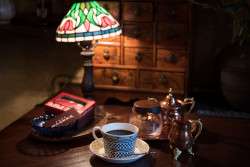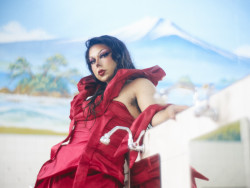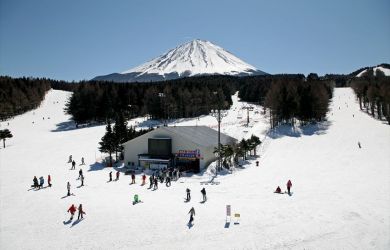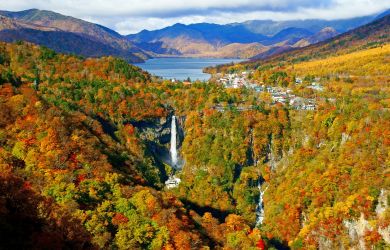
October 16, 2008
M Café de Chaya
It’s easy to eat your fill of veggies at this L.A.-inspired cafe
By Metropolis
Originally published on metropolis.co.jp on October 2008
Although the macrobiotic lifestyle was pioneered by Japanese dieticians in the ’50s and ’60s, it was in California, especially Los Angeles, where this holistic approach to healthy eating took hold in the ’70s. For decades, the grain- and vegetable-based diet had the unfortunate reputation of being bland and difficult to shop for and prepare, but in recent years macrobiotic cooking has become a hit with the Hollywood celebrity set.
So we were very much interested when we heard that a café chain from LA offering “contemporary macrobiotic cuisine” had opened in Roppongi’s Ark Hills. We headed over from Roppongi-Itchome station and found an inviting space with a deli counter and terrace seating. As we expected, many of the patrons were trendy, health-conscious young women. When we took a seat on the terrace, it immediately struck us that this would also be a lovely spot to have lunch or grab some vegetable juice in the morning.
A notice informed us that all of the offerings here are free of meat, eggs, refined sugar and artificial flavoring, though some fish is used. Slightly worried that this wouldn’t leave the chefs much to work with, we were pleasantly surprised to see a wide selection of dishes based on soybeans and brown rice. The Californian influence on the menu was evident with the salmon-avocado wrap (¥1,380 full / ¥780 half) and the “Big Macro” soy burger (¥1,480).
We decided to start by splitting “the M Chopped” (¥1,470), a green salad with 10 toppings (including beets and apples) and a soymilk ranch dressing. Tempted by the prospect of Café no Tani organic beer from Shizuoka (¥630), we decided to stick with healthy, sober choices, and opted for iced organic tea (¥380) and a San Pellegrino (¥320).
In contrast to the healthy-but-less-than-filling dishes that are common to vegetarian restaurants, M Café de Chaya offers hearty fare like club sandwiches and lasagna. Big fans of Korean food, we decided to check out the macrobiotic take on bibimbap (¥1,260). As expected, the dish was made with brown rice but without the sprinklings of minced meat. Nevertheless, it was satisfactorily spicy.
We couldn’t pass up the chance to try macrobiotic lasagna (¥1,100), which comes with a choice of one side dish from the deli (we opted for a grilled-vegetable salad). Containing no cheese, this dish was made with a thick, rich and creamy soymilk sauce, and packed with sumptuous vegetables.
Although quite stuffed by this point, we wanted to try the kutte (¥600), a soft “ice cream” also made from soymilk, which we enjoyed with organic coffee (¥380). We left M Café de Chaya happy at having learned that macrobiotic food is much more than muesli and alfalfa sprouts.









